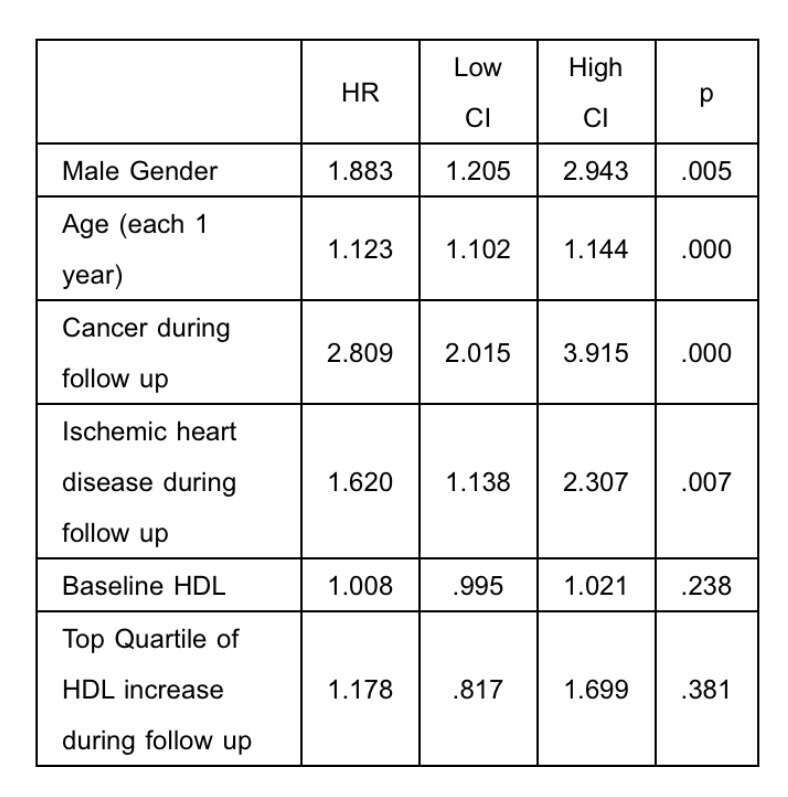
Non-Pharmacological Increase in HDL is not associated with Improved Survival in Apparently Healthy Adults
Background: Low serum high-density lipoprotein cholesterol (HDL-C) is a know predictor of adverse cardiovascular outcome. Pharmacological approaches to increase HDL-C failed to improve patient outcomes. This analysis investigated the associated of non-pharmacological increase in HDL-C with long term outcome in a large cohort of asymptomatic adults.
Methods: We evaluated asymptomatic self-referred adults aged 40-79 years who were screened annually at a tertiary medical center with at least 5 annual visits. All subjects were free of cardiovascular disease and cancer at baseline and, were not taking lipid lowering drugs and had their HDL-C level documented at each annual visit. Subjects were categorized to five equal quartiles based on their maximal HDL-C increase during follow up, with HDL-C increase defined as the top quartile (Q5). The primary end point was all-cause mortality.
Results: Final study population included 8,366 subjects with 10±4 annual visits. Mean age was 51±8 and 6,080 (73%) were men. Baseline HDL-C level was 47 ±13 mg/dL, and maximal HDL-C during follow up was 57±14. Maximal HDL increase in the top HDL-C improvement quartile was 45%±13%. Multivariate binary logistic regression showed that male gender, older age, low baseline HDL-C, high baseline triglycerides, higher baseline body mass index and baseline hypertension were all significantly associated with increased likelihood of HDL-C increase (p<.001). Baseline fitness level and fasting glucose were not associated with HDL-C increase. Surprisingly, cox regression analysis with adjustment for known predictors of poor outcome including the development of cancer or ischemic heart disease during follow up showed that HDL increase during follow up was not associated with improved survival (TABLE).
Conclusions: This analysis suggests that non-pharmacological increase in HDL-C may not be associated with improved survival in a large cohort of apparently healthy adults.


Powered by Eventact EMS